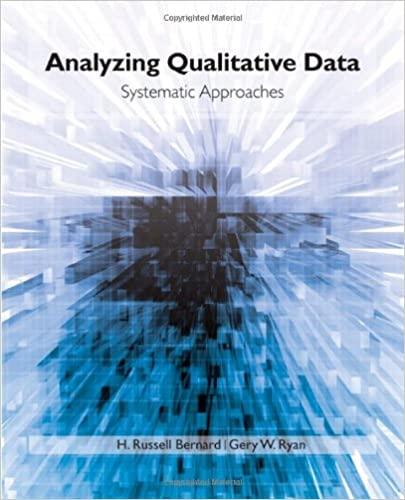Question
The internet is full, and I really mean full, of people and organizations trying to influence the opinions of others and profit from research findings.
The internet is full, and I really mean full, of people and organizations trying to influence the opinions of others and profit from research findings. Some of these people do a good job of accurately representing the findings they use, but others not so much. For this activity, your job is to find an example of someone on the Internet who attempts to use research findings to communicate with a mass audience and evaluate how well they do it. This can be in the format of advertisements, "cyber-banner" articles, news site, press releases, topic-specific discussion forums, etc. (note: it should preferably be written communication, video format will be a bit more cumbersome).
Below is a framework to use in evaluating the research communication attempt, review your information and identify how many of these questions you can answer, describing your conclusions for each. - Could the event or relationship have happened by chance (e.g., you happen to have a car accident on the day a psychic predicted that your car would fail)? - Is there a comparison control group to evaluate the performance of the experimental group? We might see an improvement in the experimental group, but would it have occurred anyway without any kind of treatment or intervention? (I. e. due to placebo effects, the passage of time, a regression toward the mean, etc.) - Does the person conclude that there is a causal relationship based on correlational data? - Does the person attempt to generalize findings to a larger group based on an unrepresentative or biased sample? - Did the person ask participants questions in a biased way (e.g., leading their responses, using emotionally charged or confusing phrases or words)? - Did the person make it impossible to identify his or her theory or hypothesis as false? Does the person consider positive evidence as supporting the theory and negative evidence as irrelevant? Does the person claim that the phenomenon disappears when you try to test it? - Does the person claim to have found the cause of a behavior or phenomenon? Most complex behaviors or phenomena have several causes. - Who benefits from the argument made? - Does the argument suffer from prejudicial biased thinking (internal or other)?
Step by Step Solution
There are 3 Steps involved in it
Step: 1

Get Instant Access to Expert-Tailored Solutions
See step-by-step solutions with expert insights and AI powered tools for academic success
Step: 2

Step: 3

Ace Your Homework with AI
Get the answers you need in no time with our AI-driven, step-by-step assistance
Get Started


